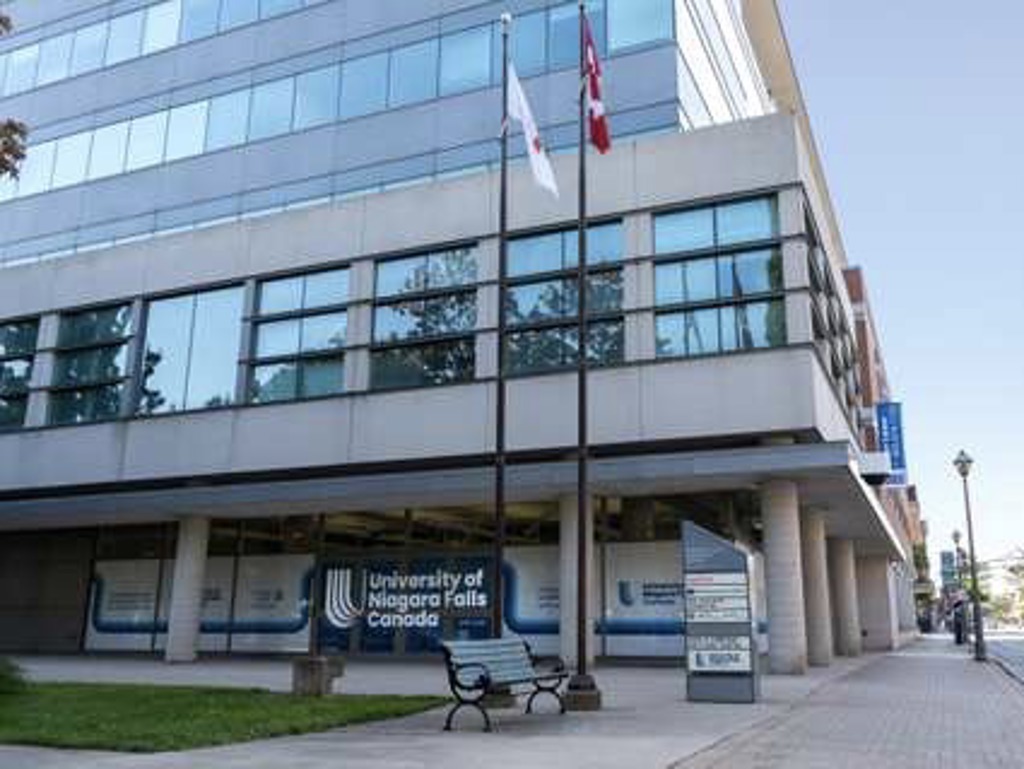A third post-secondary institution has been established in the Niagara Region, based in downtown area of the Falls.
Recently, the Canadian federal government announced a two-year cap on international student visas which has affected higher education in the Niagara Region.
The cap has resulted in chaos and confusion for students at Niagara College because of the sudden and uncertain terms around international students’ continued studies in Canada. Brock University has been experiencing a $37 million operating deficit this year and receives nearly 40 per cent of its tuition revenue from international students.
Despite the current uncertainty for Ontario post-secondary institutions, the University of Niagara Falls Canada is not worried about the two-year cap.
“I think it’ll be minimal,” said Vice President of Academics, Dr. David Gray.
The University of Niagara Falls Canada has already opened applications for graduate programs beginning in the spring semester of 2024 and additional undergraduate programs in the fall. “Master’s programs are exempt from the cap, so we have 3 master’s programs and our two undergraduate programs. Both have a significant domestic market,” said Dr. Gray at the University of Niagara Falls Canada’s first open house hosted on Jan. 26.
The University of Niagara Falls Canada resides in the recently renovated Hatch building, a staple of Niagara Falls downtown for decades. The entrance is adorned with glass walls and doors, giving the freshly designed space a very light, open feeling. The open house was hosted in the student lounge, a relatively small community area furnished with several tables and booths as well as an island counter for serving food and coffee.
Dr. Gray stated that the University of Niagara Falls Canada expects up to 100 graduate students this spring and 1000 total students by the fall.
Global University Systems Canada (GUS) first announced the establishment of a university in downtown Niagara Falls in the fall of 2022. GUS Chief Executive Officer, Cyndi McLeod, said she expects 10,000 students plus faculty and staff over the next five to seven years.
The University has recently partnered with SpacesShared, an innovative online home-sharing platform, to ensure that the students can live in safe, affordable housing in the area without significant damage to Nagara Falls’ inflating housing market. “We are all well aware of the housing situation right now, so we want to grow, but we want to grow in a responsible way,” said Dr. Gray.
“We have a full-time housing coordinator for our students who will work with every student to ensure that they’ve got accommodation that is of the quality that we are happy with.” The University of Niagara Falls Canada is still renovating the upper floors of the building, but Dr. Gray assured that they will be complete by fall 2024 and will have more than enough space to host the expected student population.
“We’ve got space on various floors. We have classroom space, we have the Student Experience Centre, we have the student lounge, we have classroom lecture theatres, we will have the faculty offices and so forth,” said Dr. Gray.
The university’s library will be entirely digital, and all student resources will be accessible online. Dr. Gray said that a digital library streamlines the renovation process because the university doesn’t require a large space for a physical archive and library.
“Everything is going to be brand new and it’s going to be state-of-the-art,” said Dr. Gray.
The University of Niagara Falls Canada has also partnered with several community institutions such as the Niagara Falls Innovation Hub also located downtown. The Innovation Hub is a “business incubator” meant to help grow small- to medium-sized businesses with a focus on technology. The partnership will allow students to access opportunities such as internships, field placements, applied research programs, pitch competitions, the Hub’s podcast studio and the Makerspace lab.
After decades of private disinvestment, the City has been exceptionally interested in revitalizing Niagara Falls’ declining downtown area.
“You couldn’t have a more superlative mayor. Mayor Jim Diodati has been very, very supportive and helpful,” said Dr. Gray.
With close access to the city’s bus terminal and several small businesses, the University of Niagara Falls Canada provides an intriguing addition to the Falls’ downtown area which will soon see an influx of students this spring.

